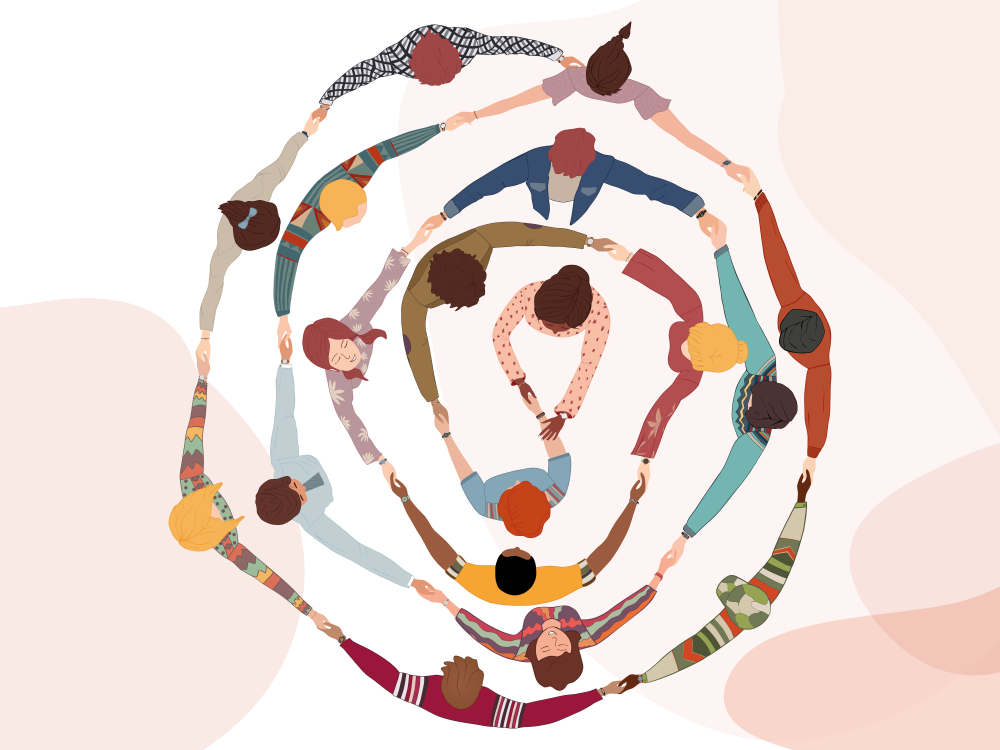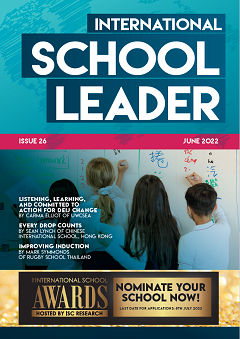By Ger Graus
Everyone needs a role model. The smallest of children naturally find someone they look up to, and seek out those they most relate to, and this continues throughout life.
In the international school settings, this can happen within the student body, although some children see no peers who look or are like them. It happens significantly less when students look to an international schools’ adult community where most teachers and leaders are white Western and, on average, the majority of young people today are not. It’s a reality that many people within the international school community do not stop to truly contemplate.
Understanding others
Active empathy helps everyone to start putting themselves in someone else’s shoes – and that takes work for us all.
When we try to imagine what a person goes through, and we try to work out what their solutions might be, sometimes what we see from the comfort of our own position are not the solutions that are achievable for others. The pandemic helped to raise some awareness of this. For those students who didn’t have internet access at home, or enough devices for the whole family, or only a mobile phone to work from, or parents who were not accessible because they were working on the frontline, those children had a completely different experience of learning during a pandemic to the youngsters who had everything available to them. For many people, this was the first time they had truly appreciated the impact of marginalisation.
Building an empathic community, where everyone is actively working together to develop empathy, is like everyone going to the gym. It becomes a muscle that the more you use, the stronger it gets. We see this happening all the time in isolated areas, such as within early years and primary classrooms. But then, when we want students to start focusing, when the learning gets serious, empathy can disappear in a flash, replaced instead with a singular mindset of servicing the system, and that starts from the top.
There are simple strategies to build an empathic classroom, but without a wider strategy, they don’t build an empathic school or achieve what they intend to do. Many teachers create opportunities for students to imagine. Many teachers encourage children to put themselves into the shoes of another, or ask them to role play different characters or groups within a debate. But oftentimes it’s facilitated within a world the teacher knows, or even a stereotyping they assume.
Taking the lead on empathy
It’s the role of school leadership to help teachers and the whole community to open minds to the experiences, challenges and achievements of others. It can begin simply and positively, by highlighting throughout the school role models who actively contradict common stereotyping such as African entrepreneurs, Paralympians, female scientists. Children can only aspire to what they know exists, but teachers often only provide inspiration for what they value.
If, as leaders, we are serious about diversity and equity being at the heart of our school, then we need to make it happen – and we need to make it happen for every single member of our community. That requires the entire school community realising that, as Vanessa Langley, Headteacher of Arbourthorne Primary School in Sheffield, United Kingdom said, “every child within the school community is everyone’s responsibility”. If we fail one student, we fail everyone in the community.
Empathy, across the entire school workforce, means putting yourselves in the shoes of every child and those of their parents too while, at the same time, combining that with the values and vision of the school. No school should be just teaching, it should be teaching to democratise.
Making a start
Many schools talk about an event that focuses on a theme, such as culture week or international week. Empathy week can be another. These are examples that can be misleading for others if they assume these are done in isolation. Sadly, too many schools do these in isolation.
Special days do not result in continued behaviour. No single event can ever make that difference. What it can do however, is act as a ‘tin opener’ to something bigger. Any focus week must have a wider initiative to build upon the momentum and embed it into the school culture. And no school is only limited to its immediate community. There are always people and resources within the wider local community, and technology to take children to any place and scenario in the world, to help build a more authentic understanding and reflect true role models for today’s world.
A unique opportunity
Building a diverse workforce provides the opportunity for voices from all different ways of life and locations to collaborate to build an equitable and inclusive school community. International schools have this potential more accessible to them than any other type of school and yet, so often it’s unrealised.
As school leaders, we can’t blame anyone else but ourselves. There are guilty parties in all corners of this. There’s also a lack of courage. If our values for our school are about respect and care, then we can’t just list these on the wall, we have to live them. We need to deliberately set ourselves up as role models and create an empathic environment where every single child sees living, breathing role models they can aspire to and learn from. And if our values are about diversity and equity, we need to deliberately develop these competencies within our colleagues as part of the school’s values towards a more meaningful, more representative, and more purposeful community.

Professor Dr Ger Graus OBE was KidZania’s first Global Education Director and founding CEO of the Children’s University. Ger is a member of Bett’s Global Education Council and Junior Achievement’s Worldwide Council; he advises the Fondazione Reggio Children, Italy; and he was invited to help shape Dubai’s future of education as a member of its Future Council. Connect with Ger on LinkedIn

